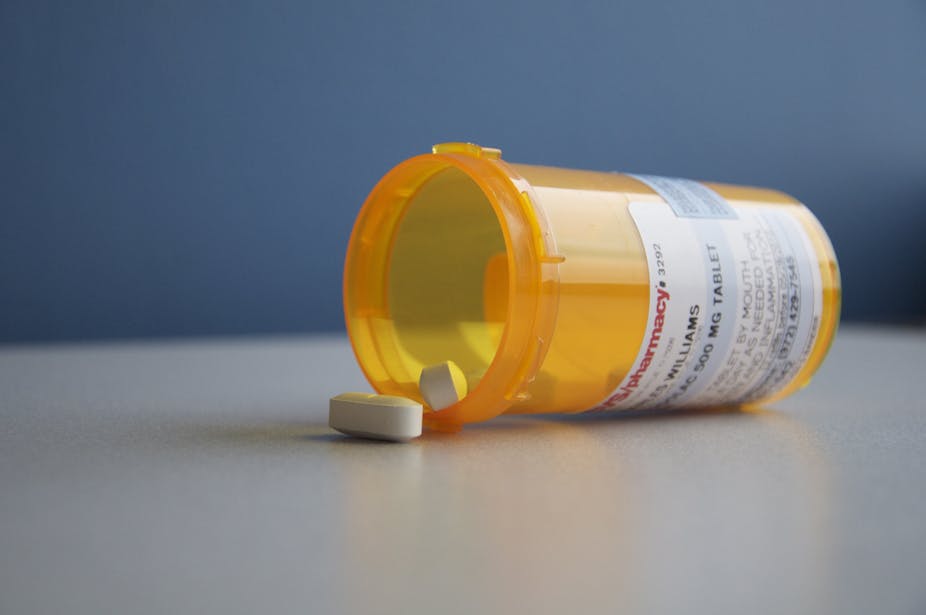There is a persistent media hype surrounding the notion that the prescription of antidepressants is “at record levels”, and “on the rise”. Yet numerous studies have shown that most people with depression do not get any treatment. How can both be true? This is the controversy I will be exploring at the Cabaret of Dangerous Ideas – part of the Edinburgh Festival Fringe – on August 8, 2014.
To approach this question, we must begin by understanding what depression is. We need to appreciate how common, disabling, and yet stigmatised it can be. We should also consider what effective treatments are available for depression, what other conditions antidepressants are prescribed for, and how antidepressants are prescribed and monitored.
Depression is an ambiguous term, but when we speak of it as an illness there is a clear definition. The World Health Organisation (WHO) has diagnostic criteria for what is called “clinical depression”. Based on the WHO definitions, clinical depression affects about 5% of the population at any point in time, and lasts for an average of six months.
People who are pervasively sad or unable to enjoy their usual activities for two weeks or more can be diagnosed with clinical depression. They will also have a number of other symptoms such as loss of energy, restlessness, sleep and appetite disturbance, poor concentration, self critical thoughts, feelings of hopelessness, and suicidal ideas.
If a person has four of these symptoms in total for a fortnight or more, they can be diagnosed with “mild depression”. Six symptoms in total indicates “moderate depression”, and eight or more symptoms yields a diagnosis of “severe depression”. People with mild to moderate depression may be able to work, but will probably be less productive than usual. They may be able to “tough it out” and wait for spontaneous improvement if work colleagues, friends and family are supportive.
People with moderate to severe depression tend to be unable to work, and may be ill for a year or more. Depression also has a tendency to recur, and is associated with increased mortality from accidents, suicide, alcohol misuse, and physical diseases. According to the WHO Global Burden of Disease Study, depression is the single most disabling condition affecting humankind. To put this in perspective, depression causes as much misery and impairment as all cancers put together.
People often receive these figures with scepticism, and responses like, “But I don’t know anyone with depression!”. Unfortunately, all of us probably do know someone with depression – it’s just they may not have spoken to us about it.
Depression is stigmatised, and so is seeking support or treatment. A recent global survey of thousands of people with depression found that about 80% had felt stigmatised, while one-third felt shunned by people they knew because of it. No wonder people are reluctant to disclose depression, even to GPs.
The good news about depression is that it is eminently treatable, with a number of different approaches. There is strong evidence that antidepressant drugs and talking treatments get people better within weeks, and will keep them well if the treatment is maintained for a year or two after recovery.
One of the most commonly prescribed antidepressants is fluoxetine, which was first marketed as Prozac in the 1990s, but is now available generically and made by a number of companies. The usual starting dose is 20mg a day, but many patients take 40mg or 60mg a day. Fluoxetine typically costs the NHS about £1 to £3 per month, for each person treated.
With this information, we can start to interpret recent figures indicating that there were almost 50 million prescriptions for antidepressants during 2012. These numbers sound astronomical, but could translate to about 5% of the population receiving a monthly prescription of 20mg of fluoxetine for about ten months.
Alternatively, they could mean that the 2.5% of the population with moderate to severe depression are getting the typical dose of 40mg a month for ten months. This is considerably less than the 12 to 24 months than would be in keeping with the best available evidence from clinical trials.
Because prescriptions are monitored as items rather than amounts, we simply cannot tell from these figures whether prescribing is excessive. This data might actually be compatible with an under-use of one of the most potent treatments for depression available to doctors.
We do know that most people with depression around the world do not get any treatment at all. We also know from at least three separate surveys in the UK that GPs are much more likely than not to prescribe antidepressants appropriately. Indeed, there is some evidence to suggest that rising prescription numbers are because people with depression are treated with antidepressants for longer periods of time, as recommended by various authorities.
When one also considers that antidepressants are commonly prescribed for the 5-10% of the population with disabling anxiety states or chronic pain syndrome, it looks like antidepressants are, if anything, underprescribed. Of course, effective psychological and behavioural treatments are sometimes available, and may be preferred for depression, anxiety, and pain. But in the final analysis, one can say with certainty that antidepressants are not over-prescribed.

